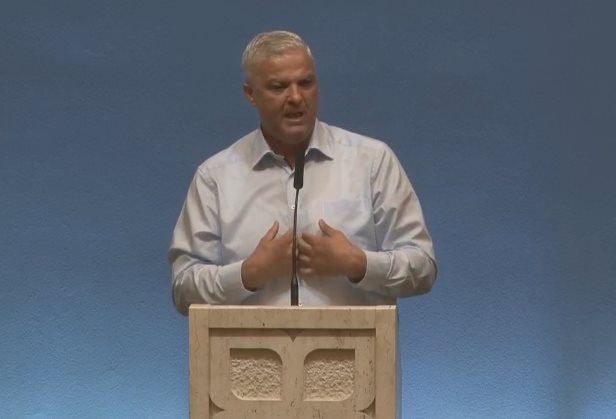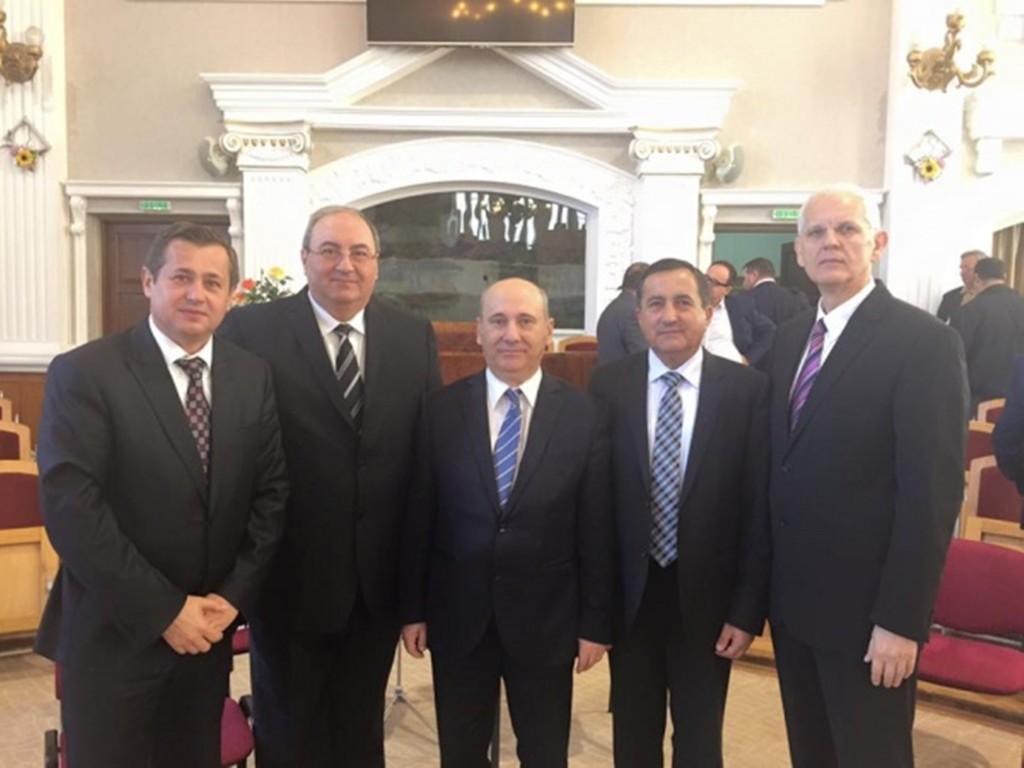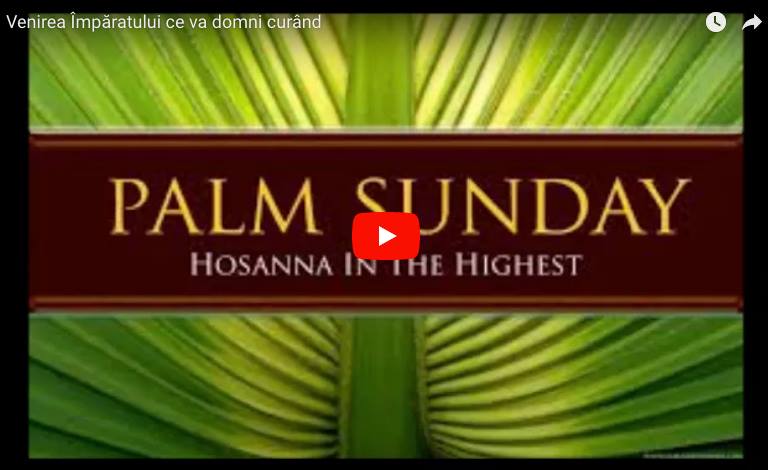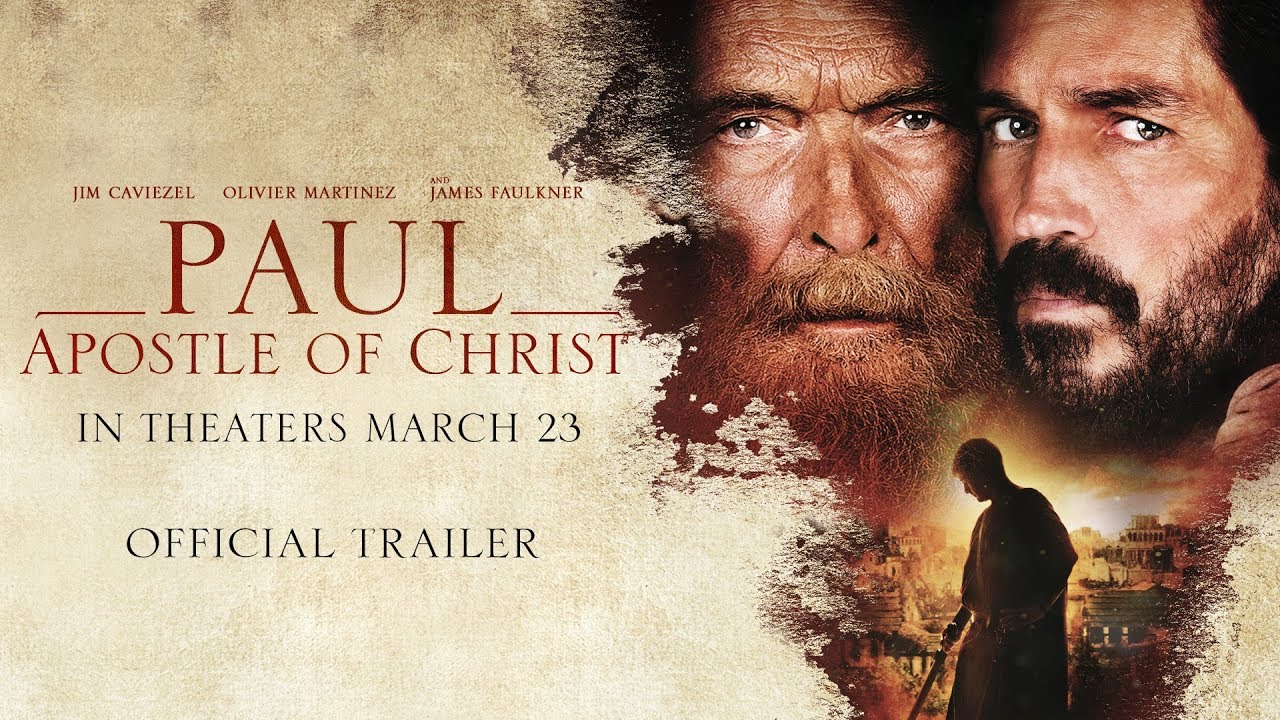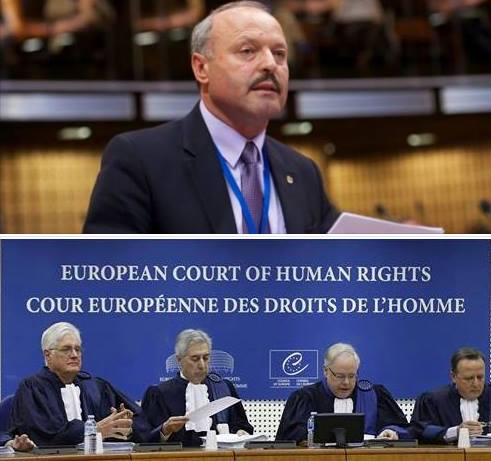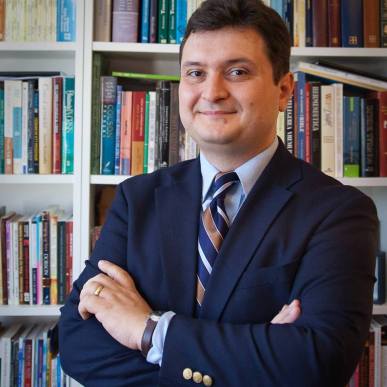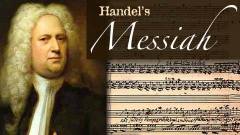 from „The exposition of the Gospel of John” (VIA) PBM Ministries. You can read more e books at PBM Ministries here. This is part 2 of 72 of A.W.Pink’s book :
from „The exposition of the Gospel of John” (VIA) PBM Ministries. You can read more e books at PBM Ministries here. This is part 2 of 72 of A.W.Pink’s book :
Christ, the Eternal Word
John 1:1-13
In the last chapter we stated, „Each book of the Bible has a prominent and dominant theme which is peculiar to itself. Just as each member in the human body has its own particular function, so, every book in the Bible has its own special purpose and mission. The theme of John’s Gospel is the Deity of the Savior. Here, as nowhere else in Scripture so fully, the Godhood of Christ is presented to our view. That which is outstanding in this fourth Gospel is the Divine Sonship of the Lord Jesus. In this book we are shown that the One who was heralded by the angels to the Bethlehem shepherds, who walked this earth for thirty-three years, who was crucified at Calvary, who rose in triumph from the grave, and who forty days later departed from these scenes, was none other than the Lord of glory. The evidence for this is overwhelming, the proofs almost without number, and the effect of contemplating them must be to bow our hearts in worship before ‘the great God and our Savior Jesus Christ’ (Titus 2:13).”
That John’s Gospel does present the Deity of the Savior is at once apparent from the opening words of the first chapter. The Holy Spirit has, as it were, placed the key right over the entrance, for the introductory verses of this fourth Gospel present the Lord Jesus Christ in Divine relationships and unveil His essential glories. Before we attempt an exposition of this profound passage we shall first submit an analysis of its contents. In these first thirteen verses of John 1 we have set forth: —
1. The Relation of Christ to Time—”In the beginning,” therefore, Eternal: John 1:1.
2. The Relation of Christ to the Godhead—”With God,” therefore, One of the Holy Trinity: John 1:1.
3. The Relation of Christ to the Holy Trinity—”God was the Word”—the Revealer: John 1:1.
4. The Relation of Christ to the Universe—”All things were made by him”—the Creator: John 1:3.
5. The Relation of Christ to Men—Their „Light”: John 1:4, 5.
6. The Relation of John the Baptist to Christ—”Witness” of His Deity: John 1:6-9.
7. The Reception which Christ met here: John 1:10-13.
(a) „The world knew him not”: John 1:10.
(b) „His own (Israel) received him not”: John 1:11.
(c) A company born of God „received him”: John 1:12, 13.
„In the beginning was the word, and the word was with God, and the word was God. The same was in the beginning with God. All things were made by him; and without him was not anything made that was made” (John 1:1-3). How entirely different is this from the opening verses of the other Gospels! John opens by immediately presenting Christ not as the Son of David, nor as the Son of man, but as the Son of God. John takes us back to the beginning, and shows that the Lord Jesus had no beginning. John goes behind creation and shows that the Savior was Himself the Creator. Every clause in these verses calls for our most careful and prayerful attention.
„In the beginning was the word, and the word was with God, and the word was God.” Here we enter a realm which transcends the finite mind, and where speculation is profane. „In the beginning” is something we are unable to comprehend: it is one of those matchless sweeps of inspiration which rises above the level of human thought. „In the beginning was the word,” and we are equally unable to grasp the final meaning of this. A „word” is an expression: by words we articulate our speech. The Word of God, then, is Deity expressing itself in audible terms. And yet, when we have said this, how much there is that we leave unsaid! „And the word was with God,” and this intimates His separate personality, and shows His relation to the other Persons of the blessed Trinity. But how sadly incapacitated are we for meditating upon the relations which exist between the different Persons of the Godhead. „And God was the word.” Not only was Christ the Revealer of God, but He always was, and ever remains, none other than God Himself. Not only was our Savior the One through whom, and by whom, the Deity expressed itself in audible terms, but He was Himself co-equal with the Father and the Spirit. Let us now approach the Throne of grace and there seek the mercy and grace we so sorely need to help us as we turn now to take a closer look at these verses.
„Our God and Father, in the name of Thy dear Son, we pray Thee that Thy Holy Spirit may now take of the things of Christ and show them unto us: to the praise of the glory of Thy grace. Amen.”
„In THE BEGINNING,” or, more literally, „in beginning,” for there is no article in the Greek. In what „beginning?” There are various „beginnings” referred to in the New Testament. There is the „beginning” of „the world” (Matthew 24:21); of „the gospel of Jesus Christ” (Mark 1:1); of „sorrows” (Mark 13:8); of „miracles” (or „signs”), (John 2:11), etc. But the „beginning” mentioned in John 1:1 clearly antedates all these „beginnings.” The „beginning” of John 1:1 precedes the making of the „all things” of John 1:3. It is then, the beginning of creation, the beginning of time. This earth of ours is old, how old we do not know, possibly millions of years. But „the word” was before all things. He was not only from the beginning, but He was „in the beginning.”
„In beginning:” the absence of the definite article is designed to carry us back to the most remote point that can be imagined. If then, He was before all creation, and He was, for „all things were made by him;” if He was „in the beginning,” then He was Himself without beginning, which is only the negative way of saying He was eternal. In perfect accord with this we find, that in His prayer recorded in John 17, He said, „And now, O Father, glorify thou me with thine own self with the glory which I had with thee before the world was.” As, then, the Word was „in the beginning,” and if in the beginning, eternal, and as none but God Himself is eternal, the absolute Deity of the Lord Jesus is conclusively established.
„WAS the word.” There are two separate words in the Greek which, in this passage, are both rendered „was”: the one means to exist, the other to come into being. The latter word (egeneto) is used in John 1:3 which, literally rendered, reads, „all things through him came into being, and without him came into being not even one (thing) which has come into being;” and again we have this word „egeneto” in John 1:6 where we read, „there was (became to be) a man sent from God, whose name was John;” and again in John 1:14, „And the word was made (became) flesh.” But here in John 1:1 and John 1:2 it is „the word (ito) with God.” As the Word He did not come into being, or begin to be, but He was „with God” from all eternity. It is noteworthy that the Holy Spirit uses this word „ito,” which signifies that the Son personally subsisted, no less than four times in the first two verses of John 1. Unlike John the Baptist who „became (egeneto) a man,” the „word” was (ito), that is, existed with God before time began.
„Was THE WORD.” The reference here is to the Second Person in the Holy Trinity, the Son of God. But why is the Lord Jesus Christ designated „the word?” What is the exact force and significance of this title? The first passage which occurs to our minds as throwing light on this question is the opening statement in the Epistle to the Hebrews: „God who at sundry times and in divers manners spake in time past unto the fathers by the prophets, hath in these last days spoken unto us by his Son.” Here we learn that Christ is the final spokesman of God. Closely connected with this is the Savior’s title found in Revelation 1:8—”I am Alpha and Omega,” which intimates that He is God’s alphabet, the One who spells out Deity, the One who utters all God has to say. Even clearer, perhaps, is the testimony of John 1:18: „No man hath seen God at any time; the only begotten Son, which is in the bosom of the Father, he hath declared him.” The word „declared” means tell out, cf. Acts 15:14, and 21:19; it is translated „told” in Luke 24:35. Putting together these three passages we learn that Christ is the One who is the Spokesman of God, and One who spelled out the Deity, the One who has declared or told forth the Father.
Christ, then, is the One who has made the incomprehensible God intelligible. The force of this title of His found in John 1:1, may be discovered by comparing it with that name which is given to the Holy Scriptures—”the Word of God.” What are the Scriptures? They are the Word of God. And what does that mean? This: the Scriptures reveal God’s mind, express His will, make known His perfections, and lay bare His heart. This is precisely what the Lord Jesus has done for the Father. But let us enter a little more into detail:—
(a) A „word” is a medium of manifestation. I have in my mind a thought, but others know not its nature. But the moment I clothe that thought in words it becomes cognizable. Words, then, make objective unseen thoughts. This is precisely what the Lord Jesus has done. As the Word, Christ has made manifest the invisible God.
(b) A „word” is a means of communication. By means of words I transmit information to others. By words I express myself, make known my will, and impart knowledge. So Christ, as the Word, is the Divine Transmitter, communicating to us the life and love of God.
(c) A „word” is a method of revelation. By his words a speaker exhibits both his intellectual caliber and his moral character. By our words we shall be justified, and by our ‘words we shall be condemned. And Christ, as the Word, reveals the attributes and perfections of God. How fully has Christ revealed God! He displayed His power, He manifested His wisdom, He exhibited His holiness, He made known His grace, He unveiled His heart. In Christ, and nowhere else, is God fully and finally told out.
„And the word was WITH GOD.” This preposition „with” seems to suggest two thoughts. First, the Word was in the presence of God. As we read, „Enoch walked with God,” that is, he lived in fellowship with God. There is a beautiful verse in Proverbs 8 which throws its light on the meaning of „with” in John 1:1, and reveals the blessed relation which obtained from all eternity between the Word and God. The passage begins at Proverbs 8:22 where „wisdom” is personified. It tells us of the happy fellowship which existed between the Word and God before ever the world was. In Proverbs 8:30 we read, „Then I was by him, as one brought up with him: and I was daily his delight, rejoicing always before him.” In addition to the two thoughts just suggested, we may add that the Greek preposition „pros” here translated „with” is sometimes rendered „toward,” but most frequently „unto.” The Word was toward or unto God. One has significantly said, „The word rendered with denotes a perpetual tendency, as it were, of the Son to the Father, in unity of essence.”
That it is here said „the word was with God” tells of His separate personality: He was not „in” God, but „with” God. Now, mark here the marvelous accuracy of Scripture. It is not said, „the word was with the Father” as we might have expected, but „the word was with God.” The name „God” is common to the three Persons of the Holy Trinity, whereas „the Father” is the special title of the first Person only. Had it said „the word was with the Father,” the Holy Spirit had been excluded; but „with God” takes in the Word dwelling in eternal fellowship with both the Father and the Spirit. Observe, too, it does not say, And God was with God,”’ for while there is plurality of Persons in the Godhead, there is but „one God,” therefore the minute accuracy of „the WORD was with God.”
„And the word WAS GOD,” or, more literally, „and God was the word.” Lest the figurative expression „the word” should convey to us an inadequate conception of the Divine glories of Christ, the Holy Spirit goes on to say, „and the word was with God,” which denoted His separate personality, and intimated His essential relation to the Godhead. And, as though that were not strong enough, the Holy Spirit expressly adds, „and God was the word.” Who could express God save Him who is God! The Word was not an emanation of God, but God Himself made manifest. Not only the revealer of God, but God Himself revealed. A more emphatic and unequivocal affirmation of the absolute Deity of the Lord Jesus Christ it is impossible to conceive.
„The same was in the beginning with God.” The same,” that is, the Word; „was,” that is, subsisted, not began to be; „in the beginning,” that is, before time commenced; „with God,” that is, as a distinct Personality. That it is here repeated Christ was „with God,” seems to be intended as a repudiation of the early Gnostic heresy that Christ was only an idea or ideal IN the mind of God from eternity, duly made manifest in time—a horrible heresy which is being reechoed in our own day. It is not said that the Word was in God; He was, eternally, „with God.”
Before we pass on to the next verse, let us seek to make practical application of what has been before us, and at the same time answer the third of the seven questions asked at the close of the previous chapter; „How may I obtain a better, deeper, fuller knowledge of God Himself? By studying nature? By prayer? By studying Scripture? Or—how?” A more important question we cannot consider. What conception have you formed, dear reader, of the Being, Personality, and Character, of God? Before the Lord Jesus came to this earth, the world was without the knowledge of the true and living God. To say that God is revealed in nature is true, yet it is a statement which needs qualifying. Nature reveals the existence of God, but how little it tells of His character. Nature manifests His natural attributes—His power, His wisdom, His immutability, etc.; but what does nature say to us of His moral attributes—His justice, His holiness, His grace, His love? Nature, as such knows no mercy and shows no pity. If a blind saint unwittingly steps over the edge of a precipice he meets with the same fate as if a vile murderer had been hurled over it. If I break nature’s laws, no matter how sincere may be my subsequent repentance, there is no escaping the penalty. Nature conceals as well as reveals God. The ancients had „nature” before them, and what did they learn of God? Let that altar, which the Apostle Paul beheld in one of the chief centers of ancient learning and culture make answer—”to the Unknown God” is what he found inscribed thereon!
It is only in Christ that God is fully told out. Nature is no longer as it left the Creator’s hands: it is under the Curse, and how could that which is imperfect be a perfect medium for revealing God? But the Lord Jesus Christ is the Holy One. He was God, the Son, manifest in flesh. And so fully and so perfectly did He reveal God, He could say, „He that hath seen me hath seen the Father” (John 14:9). Here, then, is the answer to our question, and here is the practical value of what is before us in these opening verses of John’s Gospel. If the believer would enter into a better, deeper, fuller knowledge of God, he must prayerfully study the person and work of the Lord Jesus Christ as revealed in the Scriptures! Let this be made our chief business, our great delight, to reverently scrutinize and meditate upon the excellencies of our Divine Savior as they are displayed upon the pages of Holy Writ, then, and only then, shall we „increase in the knowledge of God” (Col. 1:10). The „light of the knowledge of the glory of God” is seen only „in the face of Jesus Christ” (2 Cor. 4:6).
„All things were made by him; and without him was not anything made that was made” (John 1:3). How this brings out, again, the absolute deity of Christ! Here creation is ascribed to Him, and none but God can create. Man, with all his boasting, is unable to bring into existence a single blade of grass. Observe, that the whole of creation is here ascribed to the Word—”all things were made by him.” This would not be true if He were Himself a creature, even though the first and the highest creature. But nothing is excepted—”all things were made by him.” Just as He was before all things, and therefore, eternal; so was He the Originator of all things, and therefore, omnipotent.
„In him was life; and the life was the light of men” (John 1:4). This follows logically from what has been said in the previous verse. If Christ created all things He must be the Fountain of life. He is the Life-Giver. We understand „life” to be used here in its widest sense. Creature life is found in God, for „in him we live and move and have our being”; spiritual life or eternal life, and resurrection life, are also found „in Him.” If it be objected that the Greek word for „life” here is „zoe,” and that zoe has exclusive reference to spiritual life, we answer, Not always: see Luke 12:15; Luke 16:25 (translated „life-time”), Acts 17:25, etc., where, in each case, „zoe” has reference to human (natural) life, as such. Thus, „zoe” includes within its scope all „life.”
„And the Life was THE LIGHT of men.” What are we to understand by this? Notice two things: this statement in verse 4 follows immediately after the declaration that „all things were made” by Christ, so that it is creatures, as such, which are here in view; second, it is „men,” as men, not only believers, which are here referred to. The „life” here is one of the Divine titles of the Lord Jesus, hence, it is equivalent to saying, „God was the light of men.” It speaks of the relation which Christ sustains to men, all men—He is their „light.” This is confirmed by what we read in verse 9, „That was the true light, which lighteth every man that cometh into the world.” In what sense, then, is Christ as „the life” the „light of men?” We answer, In that which renders men accountable creatures. Every rational man is morally enlightened. All rational men „show the work of the law written in their hearts, their conscience also bearing witness” (Rom. 2:15). It is this „light,” which lightens every man that cometh into the world, that constitutes them responsible human beings. The Greek word for „light” in John 1:4 is „phos,” and that it is not restricted to spiritual illumination is plainly evident from its usage in Matthew 6:23, „If therefore the light that is in thee be darkness, how great is that darkness,” and also see Luke 11:35; Acts 16:29, etc.
Let no reader infer from what has been said that we are among the number who believe the unscriptural theory that there is in every man a spark of Divine life, which needs only to be fanned, to become a flame. No, we expressly repudiate any such satanic lie. By nature, spiritually, he is „dead in trespasses and sins.” Yet, notwithstanding, the natural man is a responsible being before God, to Whom he shall give an account of himself; responsible, because the work of God’s law is written in his heart, his conscience also bearing witness, and this, we take it, is the „light” which is referred to in John 1:4, and the „lighteneth” in John 1:9.
„And the light shineth in darkness; and the darkness comprehended it not” (John 1:5). This gives us still another of the Divine titles of Christ. In verse 1 He is spoken of as „the word.” In verse 3 as the Maker of all things. In verse 4 as „the life.” Now, in verse 5 as „the light.” With this should be compared 1 John 1:5 where we read „God is light.” The conclusion, then, is irresistible, the proof complete and final, that the Lord Jesus is none other than God, the second Person in the Holy Trinity.
The „Englishman’s Greek New Testament” renders the last clause of John 1:5 as follows—”and the light in the darkness appears, and the darkness it apprehended not.” This tells us of the effects of the Fall. Every man that comes into this world is lightened by his Creator, but the natural man disregards this light, he repels it, and in consequence, is plunged into darkness. Instead of the natural man „living up to the light he has” (which none ever did) he „loves darkness rather than light” (John 3:19). The unregenerate man, then, is like one that is blind—he is in the dark. Proof of this appears in the fact that „the Light in the darkness appears, and the darkness apprehended it not.” All other darkness yields to and fades away before light, but here „the darkness” is so impenetrable and hopeless, it neither apprehends nor comprehends. What a fearful and solemn indictment of fallen human nature! And how evident it is that nothing short of a miracle of saving grace can ever bring one „out of darkness into God’s marvelous light.”
„There was a man sent from God, whose name was John” (John 1:6). The change of subject here is most abrupt. From „the Word” who was God, the Holy Spirit now turns to speak of the forerunner of Christ. He is referred to as „a man,” to show us, by way of contrast, that the One to Whom he bore witness was more than Man. This man was „sent from Cod,” so is every man who bears faithful witness to the Person of Christ. The name of this man was „John” which, as etymologists tell us, signifies „the gift of God.”
‘The same came for a witness, to bear witness of the light, that all through him might believe” (John 1:7). John came to bear witness of „the light.” Weigh well these words: they are solemn, pathetic, tragic. Perhaps their force will be the more evident if we ask a question: When the sun is shining in all its beauty, who are the ones that are unconscious of the fact? Who need to be told it is shining? The blind! How tragic, then, when we read that God sent John to „bear witness of the light.” How pathetic that there should be any need for this! How solemn the statement that men have to be told „the light” is now in their midst. What a revelation of man’s fallen condition. The Light shone in the darkness, but the darkness comprehended it not. Therefore, did God send John to bear witness of the Light. God would not allow His beloved Son to come here unrecognized and unheralded. As soon as He was born into this world, He sent the angels to the Bethlehem shepherds to proclaim Him, and just before His public ministry began, John appeared bidding Israel to receive Him.
„The same came for a witness.” This defines the character of the preacher’s office. He is a „witness,” and a witness is one who knows what he says and says what he knows. He deals not with speculations, he speaks not of his own opinions, but he testifies to what he knows to be the truth.
„To bear witness of the light.” This should ever be the aim of the preacher: to get his hearers to look away from himself to Another. He is not to testify of himself, nor about himself, but he is to „preach Christ” (1 Cor. 1:23). This is the message the Spirit of God will own, for Christ has said of Him, „He shall glorify me” (John 16:14).
„That all through him might believe.” „That” means „in order that.” „To bear witness” defines the character of the preacher’s office: to „bear witness of the light” makes known the preacher’s theme; that „all through him might believe” speaks of the design of his ministry. Men become believers through receiving the testimony of God’s witness. The „all” is the same as in John 6:45.
„He was not that light, but was sent to bear witness of that light” (John 1:8). No, John himself was not „that light,” for „light” like „life” is to be found only in God. Apart from God all is darkness, profound and unrelieved. Even the believer has no light in himself. What saith the Scriptures? „For ye were sometimes darkness, but now are ye the light in the Lord” (Eph. 5:8). There is a statement found in John 5:35 which, as it stands in the A.V., conflicts with what is said here in John 1:8. In verse 35 when speaking of John, Christ said, „He was a burning and shining light,” but the Greek word used here is entirely different from that translated „light” in John 1:8, and in the R.V. it is correctly translated „He was the lamp that burneth and shineth.” This word used of John, correctly translated „lamp,” points a striking contrast between the forerunner and Christ as „the light.” A lamp has no inherent light of its own—it has to be supplied! A „lamp” has to be carried by another! A „lamp” soon burns out: in a few hours it ceases to shine.
„That was the true light, which lighteth every man which cometh into the world” (John 1:9). Bishop Ryle in his most excellent notes on John’s Gospel, has suggested that the adjective „true” has here at least a fourfold reference. First, Christ, is the „true light” as the Undeceiving Light. Satan himself, we read, „is transformed into an angel of light” (2 Cor. 11:14), but he appears as such only to deceive. But Christ is the true Light in contrast from all the false lights which are in the world. Second, as the „true light,” Christ is the Real Light. The real light in contrast from the dim and shaded light which was conveyed through the types and shadows of the Old Testament ritual. Third, as the „true light” Christ is the Underived Light: there are lesser lights which are borrowed and reflected, as the moon from the sun, but Christ’s „light” is His own essential and underived glory. Fourth, as the „true light,” Christ is the Supereminent Light, in contrast from all that is ordinary and common. There is one glory of the sun, and another glory of the moon, and another of the stars; but all other lights pale before Him who is „the light.” The latter part of this ninth verse need not detain us now, having already received our consideration under the exposition of verse four. The light which „every man” has by nature is the light and reason and conscience.
„He was in the world, and the world was made by him, and the world knew him not” (John 1:10). „He was in the world” refers, we believe, to His incarnation and the thirty-three years during which He tabernacled among men. Then it is said „and the world was made by him.” This is to magnify the Divine glory of the One who had become incarnate, and to emphasize the tragedy of what follows, „and the world knew him not.”
„He was in the world.” Who was? None other than the One who had made it. And how was He received? The great Creator was about to appear: will not a thrill of glad expectancy run around the world? He is coming not to judge, but to save. He is to appear not as a haughty Despot, but as a Man „holy, harmless, undefiled;” not to be ministered unto, but to minister. Will not such an One receive a hearty welcome? Alas, „the world knew him not.” Full of their own schemes and pursuits, they thought nothing of Him. Unspeakably tragic is this, yet something even more pathetic follows.
„He came unto his own, and his own received him not” (John 1:11). How appropriate are the terms here used: note the nice distinction: „He was in the world” and, therefore, within the reach of inquiry. But to the seed of Abraham He „came,” knocking as it were, at their door for admission; but „they received him not.” The world is charged with ignorance, but Israel with unbelief, yea, with a positive refusal of Him. Instead of welcoming the Heavenly Visitant, they drove Him from their door, and even banished Him from the earth. Who would have supposed that a people whose believing ancestors had been eagerly awaiting the appearance of the Messiah for long ages past, would have rejected Him when He came among them! Yet so it was: and should any ask, How could these things be? we answer, This very thing was expressly foretold by their own prophet, that He should possess neither form nor comeliness in their eyes, and when they should see Him there would be no beauty that they should desire Him. Ah! would it have been any wonder if He had turned away from such ingrates in disgust! What blessed subjection to the Father’s will, and what wondrous love for sinners, that He remained on earth in order that He might later die the death of the Cross!
But if the world „knew him not,” and Israel „received him not,” was the purpose of God defeated? No, indeed, for that could not be. The counsel of the Lord „shall stand’: (Prov. 19:21). The marvelous condescension of the Son could not be in vain. So, we read, „but as many as received him, to them gave he power to become the sons of God, even to them that believe on his name” (verse 12). This tells us of the human side of salvation, what is required of sinners. Salvation comes to the sinner through „receiving” Christ, that is, by „believing on his name.” There is a slight distinction between these two things, though in substance they are one. Believing, respects Christ as He is exhibited by the Gospel testimony: it is the personal acceptance as truth of what God has said concerning His Son. Receiving, views Christ as presented to us as God’s Gift, presented to us for our acceptance. And „as many as,” no matter whether they be Jews or Gentiles, rich or poor, illiterate or learned, receive Christ as their own personal Savior, to them is given the power or right to become the sons (better „children”) of God.
But who receive Him thus? Not all by any means. Only a few. And is this left to chance? Far from it. As the following verse goes on to state, „which were born, not of blood, nor of the will of the flesh, nor of the will of man, but of God” (John 1:13). This explains to us why the few „receive” Christ. It is because they are born of God. Just as verse 12 gives us the human side, so verse 13 gives us the Divine. The Divine side is the new birth: and the taking place of the new birth is „not of blood,” that is to say, it is not a matter of heredity, for regeneration does not run in the veins; „nor of the will of the flesh,” the will of the natural man is opposed to God, and he has no will Godward until he has been born again; „nor of the will of man,” that is to say, the new birth is not brought about by the well-meant efforts of friends, nor by the persuasive powers of the preacher; „but of God.” The new birth is a Divine work. It is accomplished by the Holy Spirit applying the Word in living power to the heart. The reception Christ met during the days of His earthly ministry is the same still: the world „knows him not;” Israel „receives him not;” but a little company do receive him, and who these are Acts 13:48 tells us—”as many as were ordained to eternal life believed.” And here we must stop.
Preparatory to our next chapter, we are anxious that the reader should study the following questions: (Click here to go to the book)
1. In John 1:14 the word „dwelt” signifies „tabernacled.” The Word tabernacled among men. It points us back to the Tabernacle of Israel in the wilderness. In what respects did the Tabernacle of old typify and foreshadow Christ?
2. „We beheld his glory” (John 1:14): what is meant by this? what „glory?” At least a threefold „glory.”
3. In what sense was Christ „before” John the Baptist (John 1:15)?
4. What is the meaning of John 1:16?
5. Why are we told that the law was given by Moses, but that grace and truth came by Jesus Christ (John 1:17)?
6. Was there any „grace and truth” before Jesus Christ came? If so, what is meant by them coming by Jesus Christ?
7. How many contrasts can you draw between Law and Grace?





 John 1:1
John 1:1



 While on his way home from the Akron, Ohio tire company where he worked as a teen, young Aiden Wilson Tozer overheard a street preacher say,“If you don’t know how to be saved…just call on God.” Upon returning home, Tozer climbed into the attic and heeded the preacher’s advice.
While on his way home from the Akron, Ohio tire company where he worked as a teen, young Aiden Wilson Tozer overheard a street preacher say,“If you don’t know how to be saved…just call on God.” Upon returning home, Tozer climbed into the attic and heeded the preacher’s advice.
 (
(


 Related articles
Related articles from „The exposition of the Gospel of John”
from „The exposition of the Gospel of John” 



















































































































